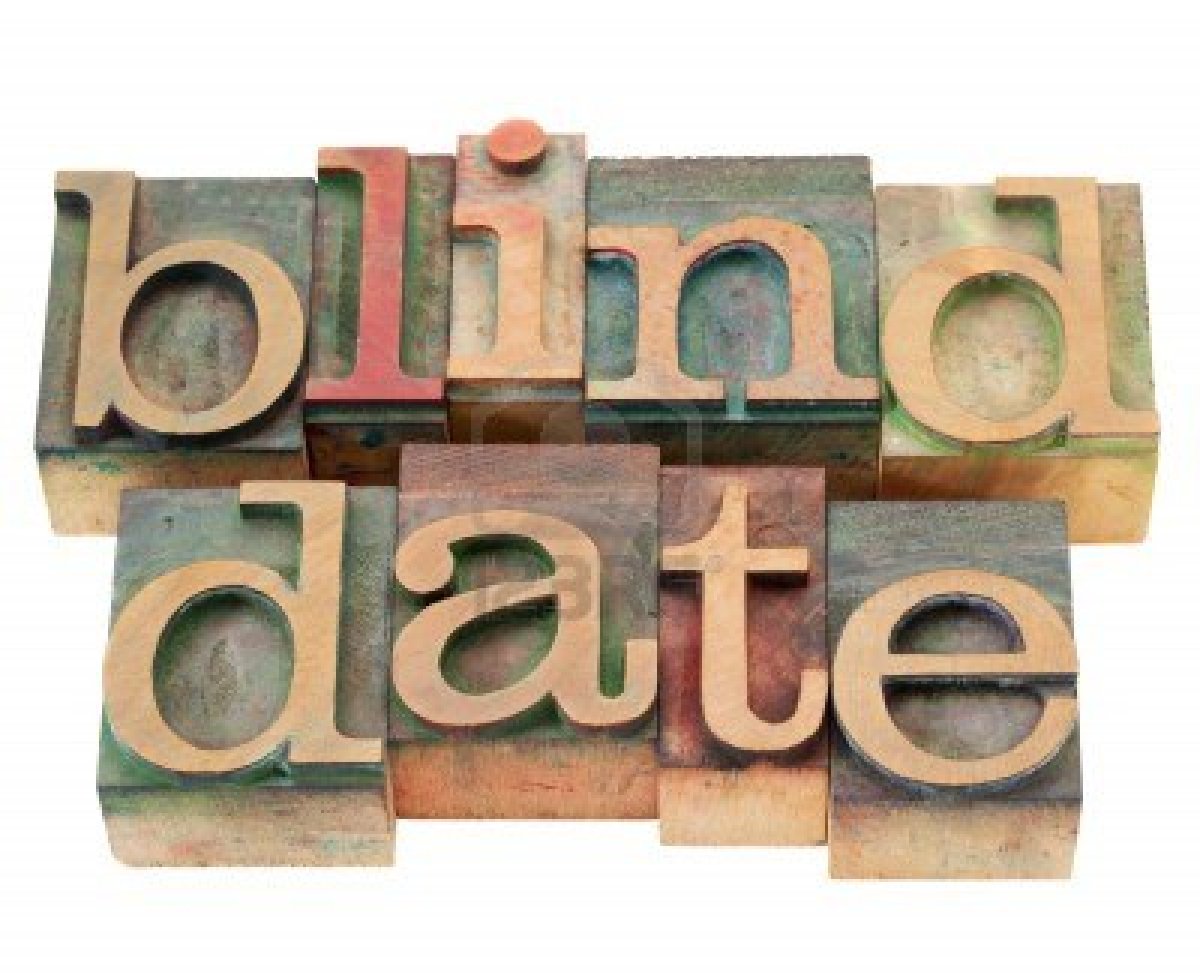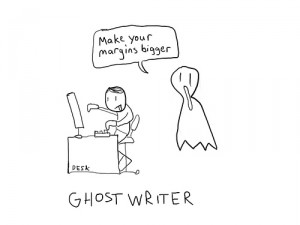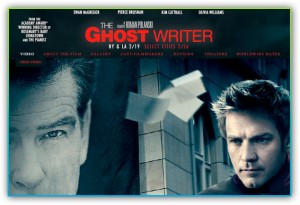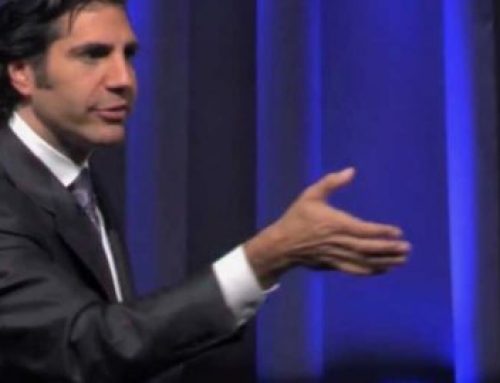A few years ago, as a contributing editor at Family Circle, I had the pleasure of interviewing bestselling author Tim Sanders, who, at the time, had just released a book titled: The Likeability Factor. Tim, a trailblazer in publishing, has now created a brand-new web site, NETMINDS.COM, unique in bringing together authors and publishing professionals in a new kind of marketplace assembled for the purpose of making great books.
Tim recently called, wanting to interview me about the subject of ghostwriting. And I share with you, as below, our chat:
“Recently I caught up with my long time friend Glenn Plaskin to talk about why chemistry was the #1 factor an author should consider when selecting a ghostwriter. He’s both an author himself, a syndicated columnist and seasoned ghostwriter of several best selling books. While many authors look for credentials or sadly, price, Glenn suggests they first seek out a personal connection.”
Tim: How did you get started as a ghostwriter?
Glenn: For me, it all started with magazine writing. After 25 years in that business, one of my interview subjects, a celebrity, had liked an article I’d written about him, and asked me to write a book with him. We would talk on tape, I’d formulate a chapter from our interviews, and then we’d go over that material until it was a fully formed chapter, then a fully formed book.
Tim: Talk to me a little bit about why the author/ghostwriter relationship needs to be collaborative?
Glenn: It’s like going on a blind date except there won’t be any romance, at least there shouldn’t be! But it is a little like dating someone. There has to be that indefinable click. And is anything more collaborative than dating? You have to feel a rapport, some kind of emotional connection that allows the author of the book to feel comfortable with a ghostwriter, to feel that the ghostwriter understands them, not just intellectually, but emotionally. An author/ghostwriter relationship needs to be harmonious. You’ll be working together in very tight quarters. So things have to be amiable. And having a great sense of humor is key too! I once met with a prospective author for what was scheduled as a 45-minutes meetin. We ended up talking and laughing for three hours! I knew after that our writing relationship would be a successful pairing. And it was.
Tim: How do you conceptualize the author/ghostwriter relationship?
Glenn: The author may have a compelling story but may not have the time, skill, or training to write it. The ghostwriter is the conduit. I compare it having a Mercedes. It’s a great car but when you need it serviced, you don’t try to do it yourself. You take it to the dealer. The ghostwriter the book mechanic, who is best equipped to make the Mercedes run perfectly. The author has the ideas and the content; the ghostwriter has the technical skills to tell the story in the way in needs to be told.
Tim: Let’s put you in the author’s shoes. What should an author look for in a possible ghostwriter? You indicated humor previously. What other factors should the author be looking for in those first two general meetings with a ghostwriter?
Glenn: Well, the first thing a prospective author should do is check a ghostwriter’s credits. A simple resume check. Google the name, see what comes up. Go to the ghostwriter’s website. See if it’s professional and well maintained. Make sure they’ve been published. Make an effort to call authors the ghostwriter has worked with in the past and ask them how working with that ghostwriter was. There is quite a lot of pre-prep that can be done.
Tim: And ghostwriters have their credentials readily available.
Glenn: Exactly. Once an author has determined the ghostwriter is professional, step two is the meet and greet. Usually the first iinteraction is conducted over the phone, the second meeting in person. The very first thing I look for is simple likeability. Do you like the person? Would you be their friend in “real life”? Are you impressed with their intelligence? Do they seem to understand what you’re talking about? Did they come prepared? Nothing will impress someone more than knowing something about them. Everyone likes to talk about themselves. Also, is the ghostwriter a good interviewer? Can the ghostwriter fill in the blanks? Are they a good listener?
Do they seem to be grasping the verbal cues that you’re giving them and picking up on them and furthering along the conversation?
Tim: Do you always ghostwrite subjects that you are well versed in?
Glenn: Not at all. I met with a pastor once. I really liked the guy, so he passed the likeability test. But I didn’t feel connected with the religious subject matter of his book. I didn’t actually have much interest in it. So, I turned the project down. A few months later, he came back to me and asked me again. I said yes, I challenged myself. We ended up having a great collaboration. My lack of knowledge of the Bible didn’t hurt the product in any way. I feel a good ghostwriter can write about anything, especially if they have great chemistry with the author, as I did with the pastor.
Tim: Can the author cultivate that chemistry?
Glenn: The author shouldn’t have to. Remember, the ghostwriter is making your life easy. They’re servicing your Mercedes. It’s not up to the Mercedes to do the work. The ghostwriter is the one that has to build the relationship and build the trust.
Tim: As a ghostwriter, can you improve the chemistry with the author?
Glenn: If you go on a first date and then you go on the second date, and by the second date you’re not crazy about the person you’re really not going to go on any more dates. So I can’t overemphasize the importance of the first telephone and in person meetings. If the click doesn’t happen after the first two or three interactions it’s likely that it may not go any further. And maybe that’s as it should be. You can’t improve what never existed.
Tim: What do you do to sustain strong chemistry over a long project?
Glenn: Well, for starters every working relationship needs boundaries. We can’t work in an unorganized vacuum. So it’s up to the two collaborators to decide when are we going to work? How are we going to work? How often are we going to talk? Once these boundaries have been established, a ghostwriter might need to get creative when making sure the author follows them. I once worked with an author and our schedule was a tight one. We needed to finish a chapter every week. The problem was that he wasn’t giving me the information I needed soon enough. So, I gently told him, “The train is leaving the station every Monday. One way or the other.” He heard me and we had zero problems after that. I got the information I needed first thing Monday morning from then on.
Writing a book takes discipline on both sides. And that certainly helps the sustained chemistry stay buoyant. The final thing I’ve learned to help keep the chemistry strong is never responding when angry. In the book writing process, there will be moments of great tension. There’s going to be times when the author is irritated, not in the mood to do his or her part, and there’s also going to be times when the ghostwriter may feel irritated by the client. That’s just normal. One thing that I practice, and I hope this is useful to others, is that when I’m upset is always the wrong time to discuss it with the client. Instead, talk to a friend, talk to your sister, talk to anybody, but don’t talk to the client. By practicing this, I hardly ever have arguments with an author. You want to avoid those at all costs. You’ve got to learn to let annoyances go. It’s almost like you have to take a Ghostwriter 12 step program! I think in order to keep the chemistry going, it’s very important to keep the relationship as harmonious as you can make it.












